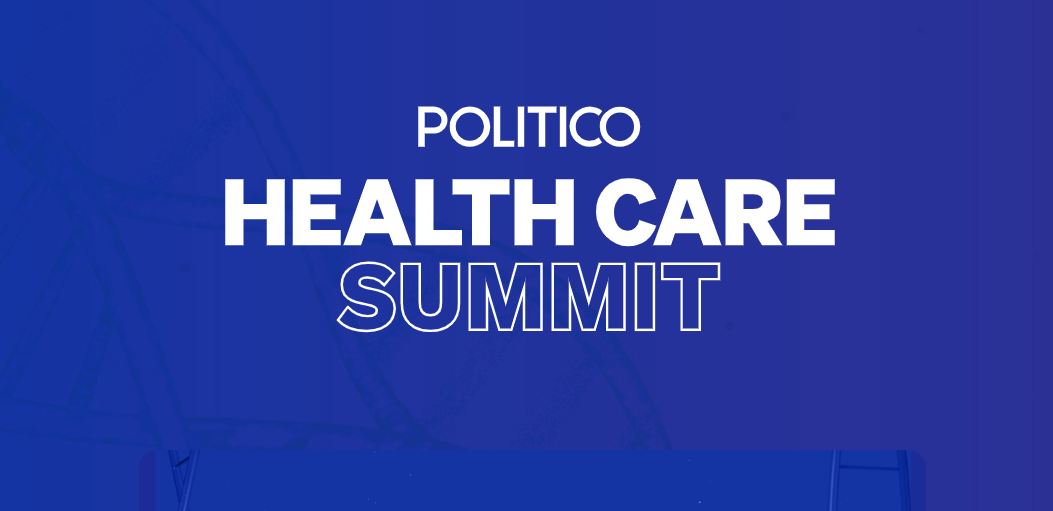The POLITICO Health Care Summit 2025 marked the 10th edition of one of Europe’s leading health policy gatherings. It brought together EU and national policymakers, industry leaders, researchers, and civil society to discuss how Europe can strengthen its health competitiveness at a time of global uncertainty, rising disease burdens, and increasing pressure on health systems.
While geopolitical dynamics, economic constraints, and regulatory reforms shaped the overarching discussions, digital transformation remained a central theme throughout the event.
SHIFT-HUB attended the Summit to follow these developments, connect with key stakeholders, and gather insights relevant to the project’s work on smart health innovation, data use, and responsible AI adoption.
Digital Health Highlights – Key Takeaways
AI in Health: Promise, Limits, and Real-World Readiness
Across the sessions, speakers emphasised that AI has transformative potential but is not a “magic wand.” It can enhance diagnosis, support clinical decision-making, and help process the vast amounts of data generated in hospitals and remote monitoring. Examples included AI-enabled patient monitoring, solutions that accelerate MRI scans, and tools that improve workflow efficiency.
However, real uptake remains uneven. Many hospitals still operate with very low digital maturity, making it difficult to integrate AI into daily practice. Pilots often fail to scale due to infrastructure gaps, insufficient data quality, limited workforce training, or misalignment with clinical workflows. Several panellists stressed that AI must be embedded into prevention and early detection strategies—not only disease management—to unlock its full value.
The European Health Data Space (EHDS)
The EHDS emerged as a key enabler of future health innovation. Speakers described it as essential for building a trusted environment where data can flow securely and support both clinical practice and research.
Yet expectations remain tempered by practical challenges. Hospitals vary widely in interoperability, data maturity, and readiness to share data responsibly. Ensuring transparency and trust in data use is considered critical, along with consistent technical infrastructure and coordination across Member States. The Commission is now developing technical specifications designed to be AI-ready, aiming to ensure that EHDS becomes a foundation for routine data use in the long term.
Regulation, Trust, and Implementation of the AI Act
Regulatory discussions focused on how to balance innovation with safety. Participants recognised that the AI Act gives needed guardrails, but its implementation must remain flexible so it can adapt as technologies evolve. Industry representatives stressed the need for clearer guidance, simplified procedures, and sufficient capacity in notified bodies, particularly for SMEs.
Trust was highlighted as a decisive factor in uptake: AI must show measurable value in real clinical settings before adoption will accelerate. Evidence generation, transparency, and a strong human-technology interface remain core requirements.

Data Quality, Access and GDPR Challenges
AI depends on robust, diverse, and high-quality datasets, yet the healthcare sector still struggles with fragmented, unstructured, or inconsistent data. GDPR provides essential safeguards but also creates grey areas for AI training, particularly when anonymisation removes variables needed for accurate modelling.
Speakers called for more harmonised datasets, clearer rules for responsible access, and the involvement of clinicians, patients, and hospitals early in the development process. Several noted that Europe must move from isolated pilots to large-scale deployment strategies if it wants to remain competitive.
Workforce Capacity & the Human Factor
A shortage of digitally skilled health professionals is slowing implementation. AI should support staff, reduce routine workload, and assist less experienced clinicians—provided strong safeguards are in place. Successful deployment depends on training, digital workflows, and organisational transformation, not just technology.
Industry Perspective on MedTech and Software Regulation
Industry representatives described Europe’s medical device framework as robust and technology-agnostic but raised concerns about overlapping regulatory requirements that could create double burdens, particularly for SMEs. Access to reliable data remains a major bottleneck for AI-based medical technologies.
There is cautious optimism around updates to the Medical Device Regulation, with stakeholders watching closely how simplification measures will be implemented.
Relevance for SHIFT-HUB
The discussions directly connect to our focus on:
- responsible AI adoption and digital maturity in health systems,
- data governance, interoperability, and the emerging EHDS,
- regulatory evolution affecting data-driven and AI-based health solutions,
- workforce readiness and skills development for digital transformation.
These takeaways reinforce SHIFT-HUB’s focus and services to support scalable smart health innovation, data-centric ecosystems, trust-building, and cross-border collaboration within European health systems.
By Gabriele Casalini, European Digital SME Alliance


